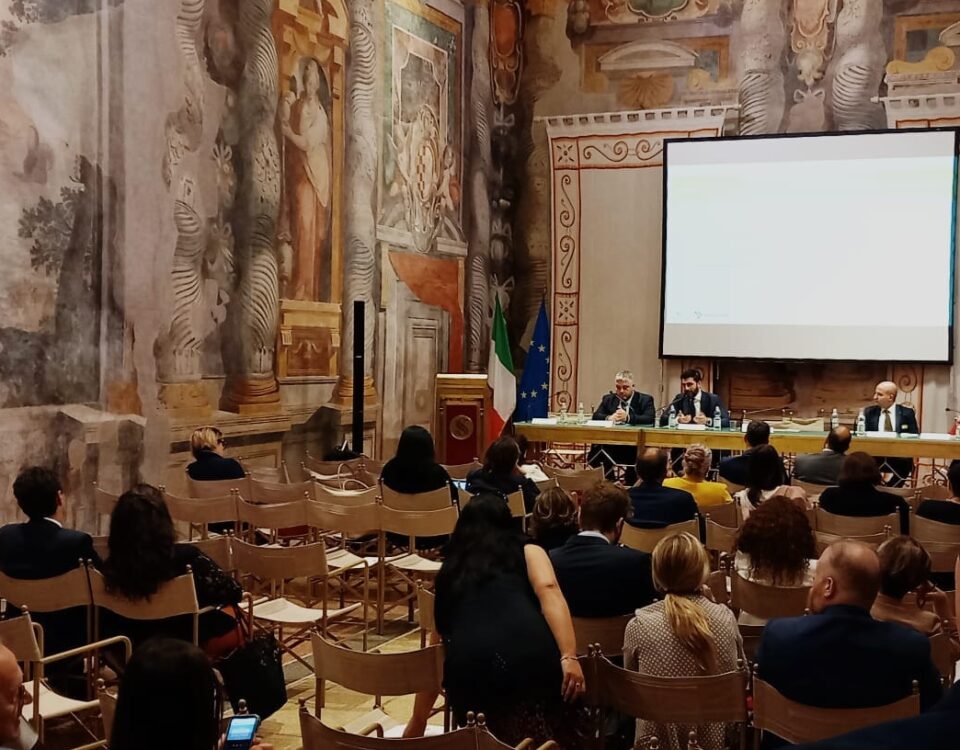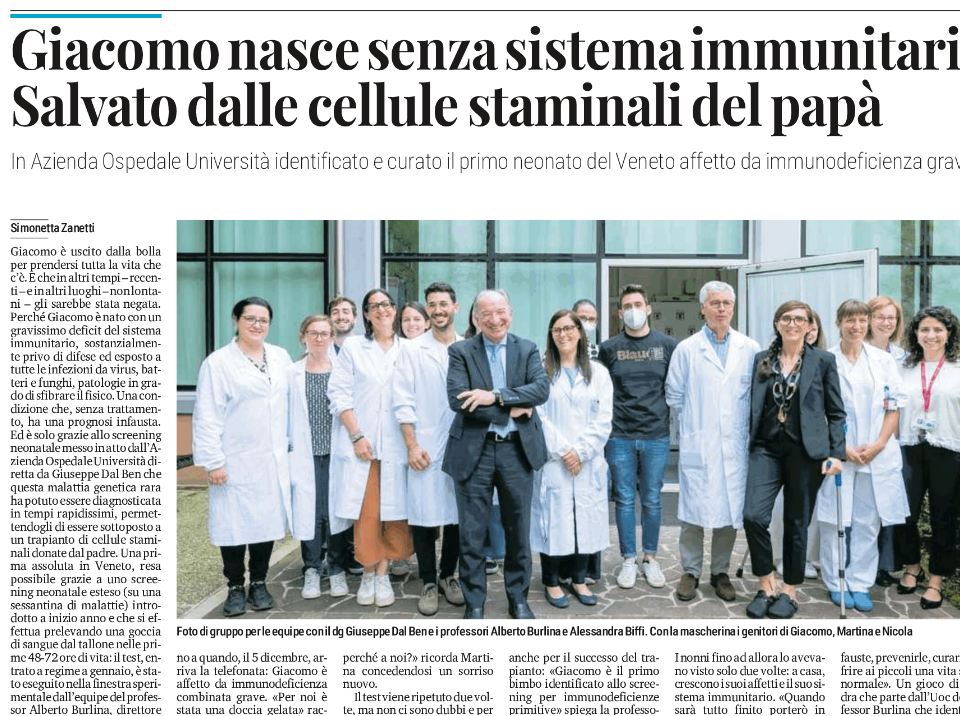Blunt announces improved health screening for newborns
17 Giugno 2005TKT Reports Positive Top-Line Results of Hunter Syndrome Pivotal Trial
20 Giugno 2005Gifts seek chance for ill girl
“THIS CHILD IS IN A RACE AGAINST TIME’
Rock Hill child needs stem-cell treatment
DAVID PERLMUTT
Staff Writer
For now, Isabel Jurado walks and runs, plays and laughs like most 3-year-old girls.
For now — because if she doesn’t get medical help her world likely will go silent, speechless and immobile in a matter of years.
A day after her third birthday on May 22, doctors first diagnosed Isabel with a rare — a 1-in-70,000 — disorder called Sanfilippo syndrome, or MPS III.She needs a stem-cell transplant to set up a roadblock on the advancing disease. Duke Medical Center’s pediatric bone marrow division has performed more transplants for MPS children than any other hospital in the country.
Problem is: The Duke division is not a network provider for the Jurados’ insurance company, and the operation and treaSo as Isabel’s parents, Jimmy and Leslie, negotiate with their insurer, their friends and relatives — and strangers — are coming to the rescue, unwilling to wait for bureaucratic decisions.
Already they’ve scheduled fundraisers: yard sales and car washes in Rock Hill, where Isabel and her parents live, barbecues in Guatemala, lemonade stands in west Florida. Donations have come in from around the world, the bulk from customers of Isabel’s father.
“This child is in a race against time,” said Dana Smith of Rock Hill, a close family friend. “We don’t have time to fight the insurance company. Every day, Isabel gets a little worse.”
tment could cost more than $1 million.
An insidious buildup
At birth, all signs said that Isabel was a healthy baby.That’s generally the way MPS III works. Children with the disorder lack an enzyme that breaks down dead cells that are normally processed and digested in soft tissue organs and muscles.
The bad cells “accumulate in the body, and that causes damage to different body parts,” said Vinod Prasad, Isabel’s doctor at Duke. “The preponderance of the problems are in the brain and nervous tissue.”
Once there is enough damage, the symptoms start to appear.
The victims don’t develop, they regress in motor skills and eventually become bed-ridden. In more severe cases, they die.
Isabel’s symptoms were right on cue.
Her parents first started noticing that her speech was behind other children.
“She didn’t understand concepts like `sky’ or `sun in the sky,’ ” said mother Leslie, an occupational therapist in the Rock Hill school system. “I work with children with special needs and I knew when my daughter was developing normally and when she started to change.”
She had ear infections, constant upper respiratory infections and chronic diarrhea. After a battery of tests, everything looked OK.
“A friend had called my mom and told her to read an article on MPS, she was afraid to mention it to me because of the prognosis,” Leslie said.
Last week, UNC Chapel Hill pediatrician Joseph Muenzer conclusively diagnosed Isabel with MPS III, Type A. It is a genetic disease, meaning she inherited the defective gene from both parents. “The diagnosis was horrible,” Leslie said. “But now we knew what we were dealing with and can map a plan of action.”
A chance to slow illness
The Jurados won’t know if Isabel is eligible for the stem-cell transplant until next week, when Prasad assesses the level of damage to her body.
They got good news this week: Their insurance company approved the $20,000 to $30,000 it will cost for the screening.
Duke has performed about 16 transplants on MPS III children. Each underwent chemotherapy to kill specific cells and was infused with blood from umbilical cords with the working enzyme.
A few patients died — their damage was advanced.
“Those not affected profoundly when they came for transplant are still alive and have shown either arrest of further progression or, in some cases, improvement,” Prasad said.
The Jurados understand there is no cure at present for Isabel, only this chance to put the brakes on the disease.
Beyond getting help for their daughter, they want to start a foundation to pass along the generosity shown them and help other families — and urge doctors to educate themselves on the warning symptoms for MPS III.
Help for Isabel is coming from all corners.
Jimmy Jurado is in charge of Latin American sales for a chemical company in Charlotte that makes textile dyes.
His customers are sending donations from Mexico, Guatemala, Peru and other Latin American countries. The chairman of his company, based in Taiwan, approved a large donation for Isabel.
Her Florida cousins, ages 12, 11 and 6, sold carwashes, lemonade and brownies and raised $5,800. They spoke to a women’s group and raised another $250.
“It is unbelievable the help we are getting,” Jimmy Jurado said. “We are so grateful. God is opening a door and we are following.”
How to Help Isabel
A yard sale/bake sale/ carwash will be held from 8 a.m. to noon today at First Presbyterian Church in Rock Hill, 234 E. Main St. Organizers will accept donations of clothes, furniture and other items at the church today from noon to 10 p.m.
Next Saturday, organizers will hold a spaghetti dinner and raffle at First Presbyterian, starting at 6 p.m. Dinner is free, but diners will be asked to make a donation. Raffle tickets will sell for $5.
If you can’t make either event but want to help Isabel, write a check to First Presbyterian Church, attn. “Isabel Medical Fund,” and send it to First Presbyterian Church, Family Support Fund, P.O. Box 1011, Rock Hill, SC 29731.
For more information on MPS III and other MPS disorders visit the National MPS Society’s Web site at http://www.mpssociety.org/.
“




